Like I’ve said, all the guides are extremely competitive. Just as we make little bets about who will catch the first fish, the biggest fish, etc., I’m pretty sure the guides make similar bets amongst themselves about us. Did Coki win some bet for helping me land my first tarpon? I don’t know for certain but it wouldn’t surprise me.
I’ve also mentioned how passionate Coki is about the fishing. If you screw up, he’ll let you know. He can’t help it. He figures it’s his job to get you to the fish and then it’s your job to catch the damn things. And he’s right, of course.
Yesterday was an extremely frustrating day. Cam and I had paired up with Coki as our guide. So far everybody on the boat except for Cam has caught a tarpon. So just as Coki poured all his efforts the other day into getting me my first tarpon, he assured Cam in the morning that he was going to catch a tarpon.
But we were having one of those off days when no matter what you do or where you go, the fish just are not there. Cam and I fished all morning long and didn’t even see a fish. I’d stand up on the nose of the boat for half an hour or forty-five minutes, my line slack at my feet, and when I got tired, I’d switch places with Cam and he’d do the same. Hardly a cast was made.
The afternoon wasn’t any better. Plus it was even hotter than usual out on the water, with not even a hint of a breeze, and by four or five we both sort of felt like we’d had enough and were ready to head back to Avalon I. But Coki was not ready to give up. He insisted that he knew a “secret spot,” somewhere the other guides didn’t know about and for sure we would catch some bonefish and then he would take us to another great spot and for sure Cam would get his tarpon.
Well, what could we do? We headed for Coki’s secret spot. With the sun just blazing down on top of us, we headed east through the mangroves until we got to a section of shallows covered in turtle grass. It would be difficult to spot fish in the turtle grass but the area certainly did look ripe for bonefish.
Cam got up on the nose of the skiff and stood there under the blistering sun as Coki poled through the shallows. For half an hour he poled the boat and we didn’t see a single fish. Then finally he spotted a small school about a hundred feet in front of us. The only problem was that the bones were in water that was no more than a foot deep and the tide was going out. But Coki was not to be denied. He poled and he poled, grunting and sweating, sometimes getting the skiff stuck in the muddy bottom and we would rock the boat from side to side until we were free and moving again. Finally, the boat would go no further. It was too shallow. The bones were still there but it would take some tremendous casting by Cam to reach them. He tried, and tried, and tried some more but he could never quite get the fly far enough. And eventually the school swam away.
Meanwhile, the tide had continued to go out. We were now so stuck in the shallow water that Coki had to get out of the boat in his bare feet and, sinking midway to his thighs, try to push us out. But it was no go. So Cam go out as well and with him on one side of the boat and Coki on the other, the two of them tromped through the muddy bottom pushing the boat while I stood as far on the nose of the skiff as possible to get the stern out of the mud. It was tremendously difficult work. And we had to go much further than anyone had imagined. In all, Coki and Cam pushed the skiff over the shallow muddy bottom for fifteen or twenty minutes until we were finally in deep enough water to get back in the boat. At which point Cam said he didn’t care about any more fishing for the day, he was going for a swim. He stripped down to his boxers and dove into the water, floating on his back like a turtle in the cool, clear water. We were done for the day.

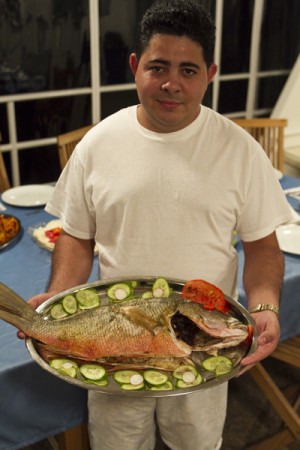
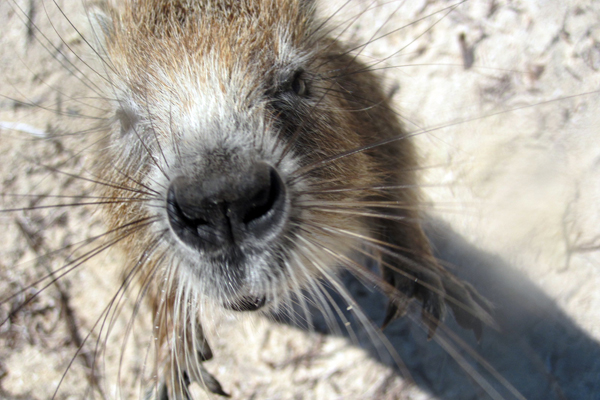
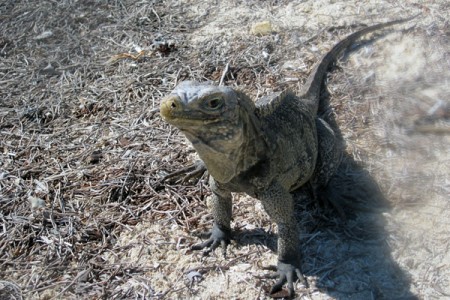
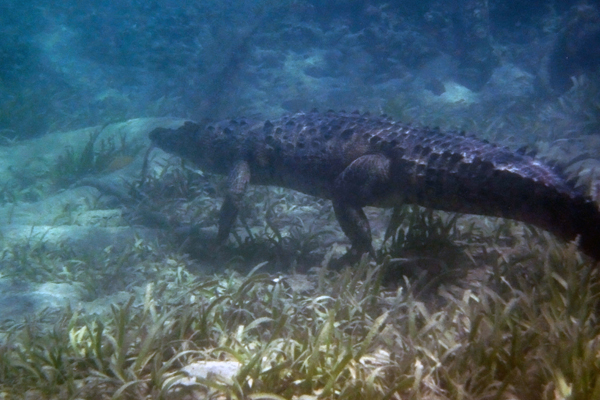
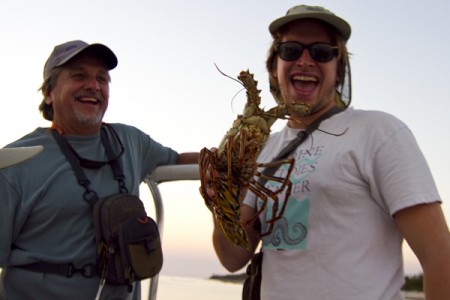
Recent Comments